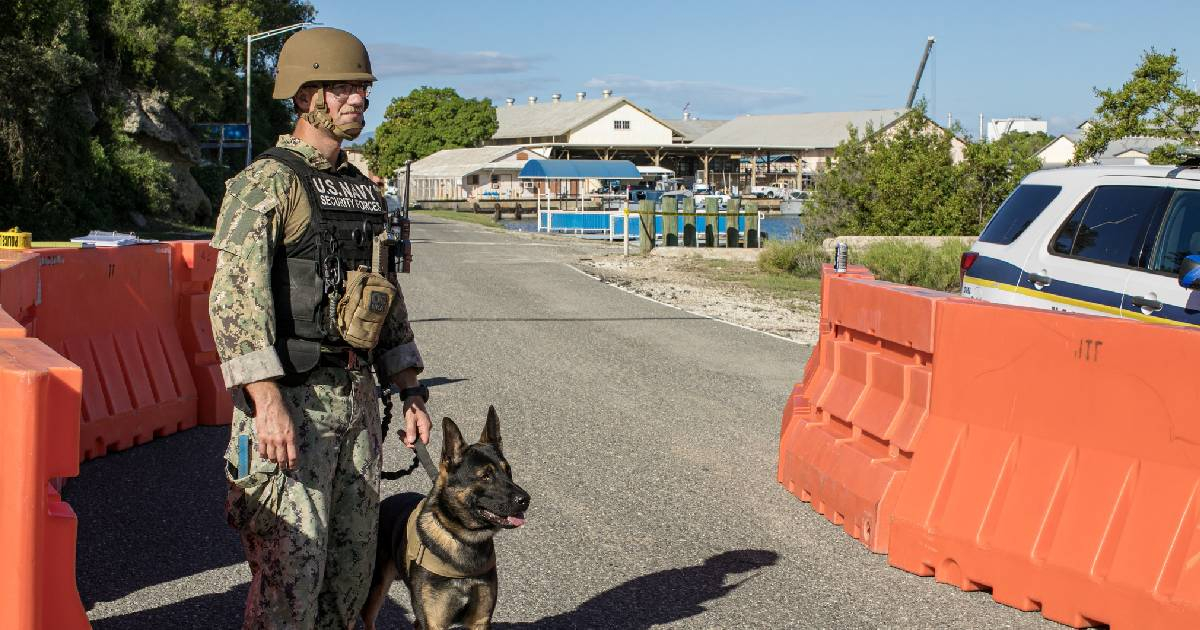A group of U.S. Marines has arrived at the Guantanamo Bay Naval Base in Cuba, as part of preparations by President Donald Trump's administration to use the facility as a detention center for migrants, according to official sources.
"The U.S. Marines have reached Guantanamo Bay to assist the Department of Defense and Homeland Security in expanding the Migrant Operations Center, furthering President Trump's mission to protect Americans and secure our nation," stated a White House press release.
Meanwhile, during an appearance on NBC News' "Meet the Press" on Sunday, Homeland Security Secretary Kristi Noem emphasized that "due process will be followed, and having facilities at Guantanamo Bay will be advantageous for us."
Noem's comments come amid anticipation following the Trump administration's announcement to use Guantanamo as a detention center for people apprehended in its campaign against illegal immigration. An executive order signed by the president directs the Department of Defense and the Department of Homeland Security to prepare up to 30,000 beds at the facility for detained migrants.
According to Politico, the military has conducted eight deportation flights so far, including four to Guatemala, three to Honduras, and one to Ecuador. However, this marks the first occasion that migrants would be sent to the base in Cuba, presenting unique legal and logistical challenges.
"Remember, Guantanamo Bay... the President has clearly stated that the 'worst of the worst' will be housed there, and we are going after these bad actors. Last week, I was in New York City. We were targeting individuals with warrants for murder, rape, assault, weapons purchases, and drug trafficking," Noem stated in the interview, reiterating that the base in Cuban territory will host migrants deemed most dangerous.
Tom Homan, Trump's border czar, noted that the Immigration and Customs Enforcement (ICE) will oversee the expanded facility at Guantanamo, though details remain unclear. Traditionally, the military has assisted in the custody of people held at the base, but not at this scale.
The military prison at Guantanamo was opened in January 2002 at the U.S. naval base on Cuba's southeastern coast, a territory leased by Havana under the Platt Amendment from 1903. The detention center was established after the September 11, 2001, attacks during President George W. Bush's administration to house prisoners labeled as "enemy combatants," who were denied many rights granted to detainees on U.S. soil.
Democratic presidents Barack Obama and Joe Biden attempted to close the facility but faced congressional opposition, keeping it operational. Guantanamo has previously been used by the U.S. to detain migrants intercepted at sea, but in a separate area from where terrorism suspects are held.
A relatively small number of immigrants have been sent to those facilities; reports indicate only 37 were held there from 2020 to 2023, but this number may increase following Trump's announcement.
Key Questions about Guantanamo Bay's Role in Migrant Detention
Why is Guantanamo Bay being considered for migrant detention?
The Trump administration considers Guantanamo Bay for migrant detention as part of its strategy to enhance national security and manage illegal immigration, leveraging its existing facilities.
What are the challenges of using Guantanamo for this purpose?
Using Guantanamo Bay for migrant detention presents unique legal and logistical challenges, given its history and the international scrutiny of its operations.
How many migrants are expected to be housed at Guantanamo?
The executive order from President Trump directs preparations for up to 30,000 beds, although the exact number of migrants to be held there is yet to be determined.
